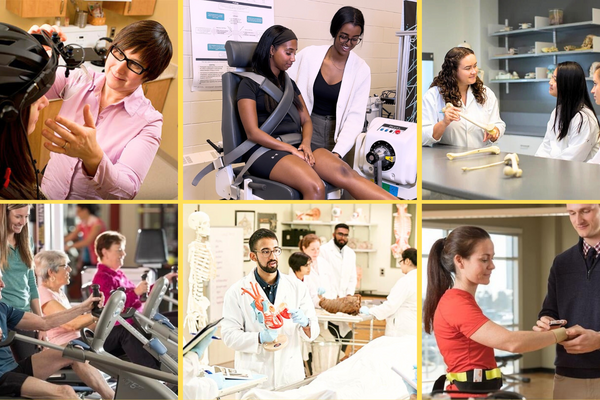
Go blue for antimicrobial resistance
City of Kitchener’s Carl Zehr Square lights up for World Antimicrobial Awareness Week

City of Kitchener’s Carl Zehr Square lights up for World Antimicrobial Awareness Week
By Milana Madzarac School of PharmacyAntimicrobial resistance (AMR) is a top global threat to both human health and food security — with significant negative economic impacts — yet most people are unaware of the harm it is causing to society.
Modern medicine, agriculture and veterinary care all depend on the availability of effective antimicrobials. However, since their discovery, antibiotics and antimicrobials such as antivirals and antifungals have become less effective as microbes develop resistance to them. This makes it harder to treat infections when they occur and more dangerous to provide advanced medical therapies, such as chemotherapy and surgery. As a result, it is estimated that 15 Canadians die each day from AMR.
World Antimicrobial Awareness Week is an annual campaign that runs from November 18-24 to highlight the consequences of AMR and share strategies to combat it through global innovation, monitoring and education.
On November 24, buildings across Canada will be lit blue to bring awareness to AMR. The City of Kitchener’s Carl Zehr Square joins the University of Waterloo School of Pharmacy in this #GoBlueForAMR colour campaign for the second consecutive year.

“AMR isn’t some distant problem. It is already happening, here and now, and is a major threat to the health of our communities,” says Brett Barrett, clinical lecturer and teaching fellow at the School of Pharmacy.
“While all antimicrobial use can lead to resistance, misuse or overuse is making AMR happen faster. Antimicrobials are a shared resource. We have a responsibility to work today to preserve the usefulness of these life-saving essential medicines for future generations.”
While solving AMR requires action from government and healthcare providers, patients also have a role to play. By practicing handwashing, considering smoking cessation, getting vaccinated and not using antibiotics to treat viral infections, such as chest colds and the flu, individuals can help in the fight against AMR.
For more information visit:

Read more
Waterloo Pharmacy alum spearheads outpatient oncology clinic for patients undergoing cancer treatment at WRHN

Read more
From optometry and pharmacy to public health and therapeutics, Waterloo alumni are powering Canada’s health care sector

Read more
Here are the people and events behind some of this year’s most compelling Waterloo stories
The University of Waterloo acknowledges that much of our work takes place on the traditional territory of the Neutral, Anishinaabeg, and Haudenosaunee peoples. Our main campus is situated on the Haldimand Tract, the land granted to the Six Nations that includes six miles on each side of the Grand River. Our active work toward reconciliation takes place across our campuses through research, learning, teaching, and community building, and is co-ordinated within the Office of Indigenous Relations.